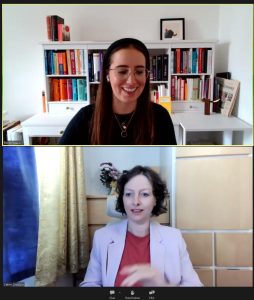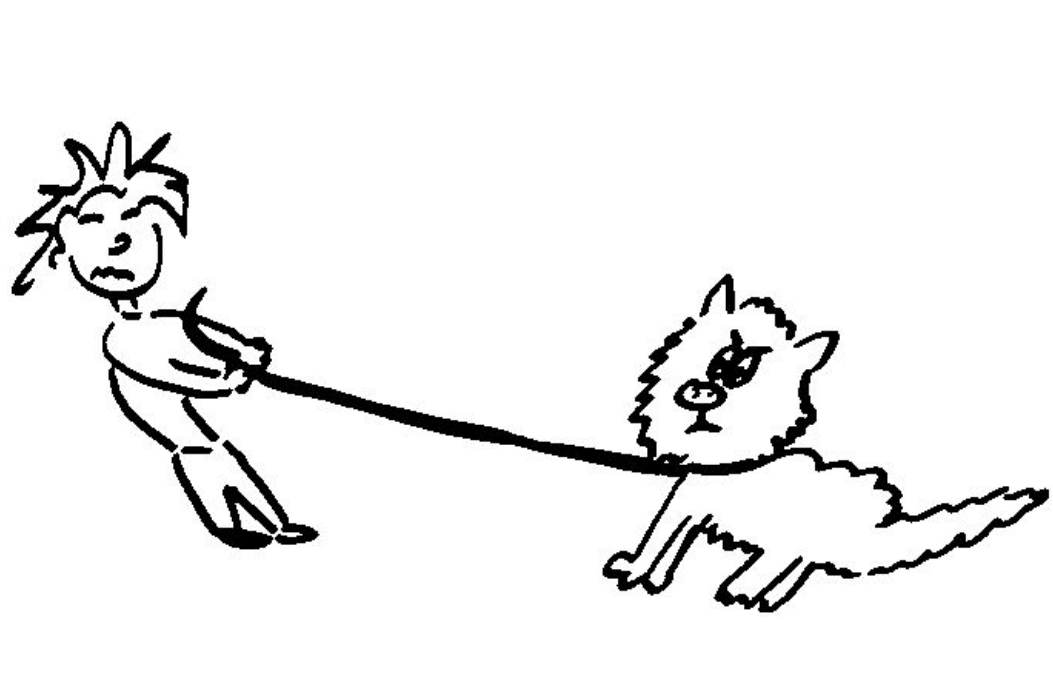Avoid procrastination: Dealing with the weaker self... On 24 May, our digital Lunch Talk took place on the topic of procrastination, and here is finally, finally the report on it! Haha - gotcha!
What is "procrastination"?
Procrastination is the perpetual putting off of tasks, and probably every one of us has to deal with this phenomenon - or let's say "vice" - occasionally or more often! According to research, there are between 10% and 20% procrastinators... I personally believe that there are actually many more. It probably depends on how you define procrastinators.
In extreme cases, the unnecessary procrastination of completing the tasks at hand can be a pathological disorder that may even indicate an anxiety disorder or depression.
 Reward: More comfort in life!
Reward: More comfort in life!
Psychologist and coach Catrin Grobbin gave valuable advice on the background of procrastination and how we can combat it in the digital Lunch Talk, which was moderated by Fondsfrau Simin Heuser. After all, there is a nice reward at the end: those who complete their tasks on time and smoothly live more relaxed and have more comfort in their lives - after all, no one will ask when this or that will FINALLY be done!
"We have to get to know our weaker self better; find out why it is the way it is," says Grobbin. In the medium term, it is about tackling the weaker self. "We have to be able to tame it, learn how to deal with it," says Grobbin. Luring it with a reward is usually more effective than using the whip, because the whip is there anyway.
Avoiding the suffering that procrastination causes
Why there anyway? Because procrastination has negative effects! After all, this is exactly why we find our habit itself annoying and want to fight against it. The following negative effects burden us through procrastination:
- Unpleasant feelings, depression
- Fear of consequences or actual negative consequences
- more stress at work
- More "rubbish time" (time that is neither productive nor relaxing)
Many people find it difficult to complete tasks on time because, for example, they do not have a clear separation of work and leisure time due to home office or because there are also tasks that do not have a specific end date, says Grobbin.
Ways to end procrastination
She therefore recommends positive self-management and more ease, so that things feel better for us.
It is also important to have motivating goals in mind, or even a small reward for completing tasks on time. This helps to tackle them more easily and quickly.
"If I don't feel like reading my news, I set a timer for 10 minutes and get started," says Grobbin. She presents different methods to tame our weaker self:
- Setting priorities (ABC analysis, Eisenhower matrix)
- Break large tasks down into smaller units (small bites are more appetising)
- Plan better (include buffers and time islands. Give A-priorities a window of time I feel good about).
- Implement (consider energy levels, Pomodoro technique, timer method)
These are helpful tips that should help us for now!
 If you would like to know more about procrastination than Simin Heuser and Catrin Grobbin were able to address in the digital lunchtalk, you can find out more at Catrin Grobbins Website . And if you are a persistent procrastinator, you can also resort to her one-to-one coaching.
If you would like to know more about procrastination than Simin Heuser and Catrin Grobbin were able to address in the digital lunchtalk, you can find out more at Catrin Grobbins Website . And if you are a persistent procrastinator, you can also resort to her one-to-one coaching.
Cover picture and photo on the left: Catrin Grobbin



